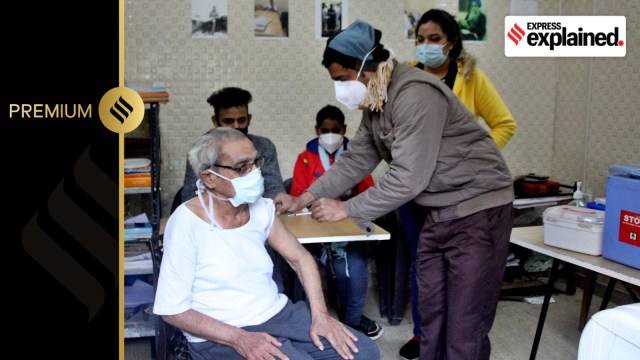Four years after the outbreak of Covid, an expert group constituted by NITI Aayog has recommended setting up a comprehensive framework to effectively manage future public health emergencies or pandemics.
The Pandemic Preparedness and Emergency Response (PPER) framework has called for a new Public Health Emergency Management Act (PHEMA), and the implementation of other measures to ensure a swift and effective response within the first 100 days of the outbreak.

The expert group, which was formed in June 2023, based its recommendations on the learnings and challenges of the Covid-19 pandemic and other public health crises. A government statement noted that Covid-19 was “undoubtedly not the last pandemic”, and “given the unpredictably, changing planetary ecology, climate and human-animal-plant dynamics, new potentially, large-scale infectious threats to human health are inevitable”.
Here are some of the key recommendations made by the expert group in its report, ‘Future Pandemic Preparedness and Emergency Response: A Framework for Action’, which was published on September 11.
Enactment of PHEMA
Public health emergencies require governments to exercise special powers such as mandatory screening of people and putting restrictions on free movement. During the Covid-19 pandemic, provisions of the Epidemic Diseases Act (EDA), 1897, and the National Disaster Management Act (NDMA), 2005, were invoked.
But these laws were not entirely satisfactory, the report said. “The EDA 1897 does not define “dangerous”, “infectious”, or “contagious diseases”, or “epidemic”. It contains no provisions for the processes required for dissemination of drugs/ vaccines, and the quarantine measures and other preventive steps that need to be taken,” it said.
The NDMA was likewise not designed to cater to health emergencies. “It does not specifically define public health emergencies or epidemics. It focuses on managing several types of disasters, including natural disasters,” the report said.
Story continues below this ad
These gaps can be filled by enacting PHEMA, the report said. The new law can empower central and state governments to effectively respond to not just pandemics, but also other kinds of health emergencies arising from non-communicable diseases, disasters or bioterrorism.
Renu Swarup, head of the expert group and former Secretary of the Department of Biotechnology, told The Indian Express, “This special provision Act would empower public health agencies to take urgent action. It would create public health cadres at national and state levels who would be trained and fully prepared to be the first responder.”
Empowered panel of Secys
The report proposed creating an Empowered Group of Secretaries (EGoS) — a committee of officials which will be headed by Cabinet Secretary to prepare for public health emergencies and monitor preparedness during peace times. It will “guide on governance, finance, R&D, surveillance, partnerships and collaborations, and other necessary functions that can be ramped up for immediate response” in case of an emergency.
EGoS will develop Standard Operating Procedures (SOP) for pandemics, and establish sub-committees for aforementioned functions, the report said.
Story continues below this ad
Strengthen surveillance
The report made several recommendations for strengthening the disease surveillance network.
It noted that several epidemics and pandemics, including Covid-19, in the past 50 years were caused by viruses linked to various bat species. Therefore, constant monitoring of the human-bat interfaces was crucial.
The report proposed the creation of a national biosecurity and biosafety network, involving leading research institutions, biosafety containment facilities (labs that use specific safety equipment, practices, and building design to protect people and the environment from biological hazards), and genome sequencing centres.
Swarup said, “All components of this system should be strengthened and connected to work in a harmonised, autopilot mode that gets ignited as soon as the first warning sign is received.”
Story continues below this ad
The report also recommended setting up an emergency vaccine bank, which would source vaccines from within or outside the country.
Network for early warning
The report proposed building an epidemiology forecasting and modelling network that can predict transmission dynamics of infectious diseases, and monitor the effectiveness of countermeasures, including vaccination, in different scenarios.
A network of centres of excellence (CoE) for research on priority pathogens is also required. Diagnostics, therapeutics, and vaccines for such priority pathogens, identified from the list maintained by the World Health Organisation, can be developed in advance, the report said.
Independent drug regulator
India needs a well-developed clinical trial network accepted by international regulatory authorities to ensure speedy access to innovative products to tackle public health emergencies. The Central Drugs Standards Control Organisation (CDSCO), which is responsible for regulating the import, sale, manufacture and distribution of drugs, needs to be independent, and needs to have special powers, the report said. The CDSCO is currently under the Ministry of Health.








































